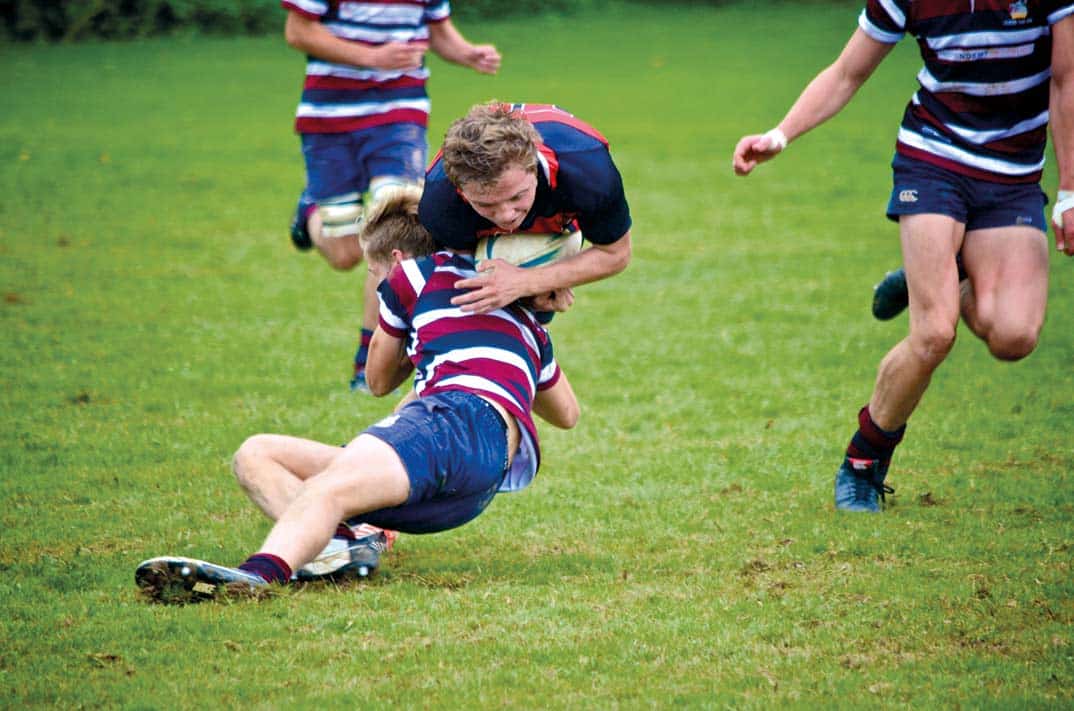Thank you very much to the Times of Tunbridge Wells for raising at local level a national debate. Your readers might find it [our report in the March 9 issue] reassuring, but I am very concerned that this may be falsely reassuring.
I have been involved as a parent in club and school rugby in Kent almost every playing weekend for over ten years with my two sons. To see five concussions of varying degrees in some matches and five concussions in a single player over a season is not unusual. The main concern is the lack of expertise to recognise concussion and more alarmingly not recording it. We have witnessed this at an international match in the UK last year where a professional player returned to play immediately, all under the spotlight of live TV. It is the prevalence of injuries that has led the concerned experts to start this debate.
Concussion is not the only injury. Other injuries are more prevalent, but easily recognised as the player is unable to continue to play. Again vastly unreported. Data from a local NHS Hospital Trust indicates 46 football, 31 rugby and 31 bike related attendances to the emergency department in 2014. Sports injury attendance is twice that of Road Traffic Collision. It seems the children are paying an unjustifiable price to gain the positive attributes that are stated in your article.
In that longstanding belief, yet unproven that sports does and non-sports activities do not, I let my two children take part in a variety of sports from pre-school age. My younger son at the age of 16 was playing rugby eight times a week in school and club, both at the highest level in Kent.
I am a medical doctor and have the advantage of reading medical evidence from sports injuries before it is in the public domain. The first article on rugby injuries that drew my attention was in January 2015 in the British Medical Journal. While contemplating on my son’s rugby career, the following month an inappropriate rugby tackle dislocated his knee during a club training session. A year on and after three major operations on his knee ligaments and nerves he is now left with a life-changing permanent disability.
I raised my concerns of rugby injuries with the England Rugby Football Union nearly a year ago. I am still waiting for a reply from the Medical Director. The changes that have been introduced so far, in my view and perhaps of the 70 experts who wrote to the government ministers and the Chief Medical Officer, are unlikely to bring about the level of safety that our children need urgently.
If the children’s welfare and not the rugby economy (applies to other sports too) is more important, then the most beneficial act would be to collect comprehensive data on all injuries that occur during organised sports activities in schools and in clubs. Under-reporting of injuries leads to falsely reassuring headlines. Parents at present are unable to make an informed decision and perhaps take adequate insurance cover as well, before letting their child get involved in high risk sports.
The culture of rugby at the youth level and higher appears to give credence to aggressive style and size of the player, and less importance to the skills. This attitude probably stems from club rugby and transfers to the school via the unsuspecting players. The parents and the children are more receptive to authorities in a school environment. Therefore, tackling rugby at the school level is likely to bring the desired changes early. Playing rugby dangerously is not a necessity for its enjoyment and for the desired benefits.








